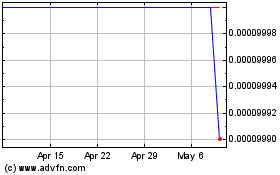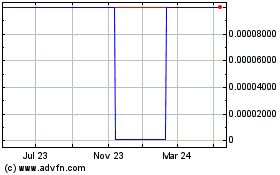Rosetta Collaborative Study Profiling microRNAs Published in Clinical & Translational Oncology
December 10 2013 - 9:00AM
Marketwired
Rosetta Collaborative Study Profiling microRNAs Published in
Clinical & Translational Oncology
Demonstrates microRNA Regulation of Epithelial Mesenchymal
Transition, a Key Contributor to Metastases
PRINCETON, NJ and REHOVOT, ISRAEL--(Marketwired - Dec 10, 2013)
- Rosetta Genomics Ltd. (NASDAQ: ROSG), a leading developer and
provider of microRNA-based molecular diagnostics, announces that
data from a collaborative study between Rosetta and a leading
research team in the field of Cancer of Unknown Primary (CUP) at
the University of Ioannina, were published online in Clinical
& Translational Oncology in an article titled, "Insights
into the epithelial mesenchymal transition phenotype in cancer of
unknown primary from a global microRNA profiling
study." The article can be accessed online at
http://link.springer.com/article/10.1007%2Fs12094-013-1139-5 and is
expected to be published in the print edition of Clinical &
Translational Oncology.
The study examined the microRNA regulation of epithelial
mesenchymal transition (EMT) and the acquisition of migratory,
mesenchymal-like properties of epithelial cells in CUP. In the
study, the global expression profile of 982 microRNAs were
evaluated by means of microarray technology in 68 CUP cases that
were immunohistochemically characterized as EMT-positive or
EMT-negative. According to the study's lead author, Aikaterini
Stoyianni, M.D., Ph.D. candidate, Medical School, University of
Ioannina, Greece, "The study results showed the EMT-suppressive
miR-203 and miR-200 family were consistently but non-significantly
down regulated in CUP samples with the EMT phenotype."
"In view of the consistency of the observed levels of miR200
family expression by EMT status, more sensitive EMT-capturing
technologies and larger CUP cohorts should be studied for further
validation of these data," commented George Pentheroudakis, M.D.,
Ph.D., Assistant Professor of Oncology at the University of
Ioannina, Greece and a co-author of the study.
"Metastasis constitutes the most common cause of death for
cancer patients and EMT is a key contributing factor to that
process," noted Dganit Bar, Chief Scientific Officer of Rosetta
Genomics. "These data suggest that microRNAs may play an important
role in EMT, which could have a direct effect on cancer metastases
and illustrates the central role of microRNAs in cancer biology.
Due to this central role, microRNAs are both interesting drug
targets and excellent biomarkers."
"We are pleased with this new publication as it underscores the
unfolding potential for microRNA technology in cancer therapeutics
and as biomarkers for various cancer-related processes including
EMT," stated Kenneth A. Berlin, President and Chief Executive
Officer of Rosetta. "Rosetta has what we believe to be one of the
broadest intellectual property portfolios in the area of microRNA
technology, and has 44 peer-reviewed publications to its credit
which further demonstrates our leadership in this area as well as
the robustness of our world class, microRNA platforms. We expect to
leverage our IP and leading microRNA capabilities and platforms to
advance these and other discoveries toward commercialization either
through collaborations, partnerships and/or through our own
internal development initiatives."
About Rosetta Cancer Testing Services Rosetta Cancer Tests are a
series of microRNA-based diagnostic testing services offered by
Rosetta Genomics. The Rosetta Cancer Origin Test™ can accurately
identify the primary tumor type in primary and metastatic cancer
including cancer of unknown or uncertain primary (CUP). Rosetta
Mesothelioma Test™ diagnoses mesothelioma, a cancer connected to
asbestos exposure. The Rosetta Lung Cancer Test™ accurately
identifies the four main subtypes of lung cancer using small
amounts of tumor cells. The Rosetta Kidney Cancer Test™ accurately
classifies the four most common kidney tumors: clear cell renal
cell carcinoma (RCC), papillary RCC, chromophobe RCC and
oncocytoma. Rosetta's assays are designed to provide objective
diagnostic data; it is the treating physician's responsibility to
diagnose and administer the appropriate treatment. In the U.S.
alone, Rosetta Genomics estimates that 200,000 patients a year may
benefit from the Rosetta Cancer Origin Test™, 60,000 from the
Rosetta Mesothelioma Test™, 65,000 from the Rosetta Kidney Cancer
Test™ and 226,000 patients from the Rosetta Lung Cancer Test™. The
Company's assays are offered directly by Rosetta Genomics in the
U.S., and through distributors around the world. For more
information, please visit www.rosettagenomics.com. Parties
interested in ordering the test can contact Rosetta Genomics at
(215) 382-9000 ext. 309.
About Rosetta Genomics Rosetta develops and commercializes a
full range of microRNA-based molecular diagnostics. Founded in
2000, Rosetta's integrative research platform combining
bioinformatics and state-of-the-art laboratory processes has led to
the discovery of hundreds of biologically validated novel human
microRNAs. Building on its strong patent position and proprietary
platform technologies, Rosetta is working on the application of
these technologies in the development and commercialization of a
full range of microRNA-based diagnostic tools. Rosetta's cancer
testing services are commercially available through its
Philadelphia-based CAP-accredited, CLIA-certified lab. Frost
& Sullivan recognized Rosetta Genomics with the 2012 North
American Next Generation Diagnostics Entrepreneurial Company of the
Year Award.
Forward-Looking Statement Disclaimer Various statements in this
release concerning Rosetta's future expectations, plans and
prospects, including without limitation: The role that microRNAs
may play in EMT, as well as the roll of microRNAs in cancer
biology, any future study and validation of more sensitive
EMT-capturing technologies and larger CUP cohorts, the potential
for use of microRNA technology in cancer therapeutics, Rosetta's
intellectual property portfolio in the area of microRNA technology.
Rosetta leveraging its IP and leading microRNA capabilities to
advance technologies toward commercialization either through
collaborations, partnerships and/or through Rosetta internal
development initiatives, and the possible role of microRNA's as
drug targets constitute forward-looking statements for the purposes
of the safe harbor provisions under The Private Securities
Litigation Reform Act of 1995. Actual results may differ materially
from those indicated by these forward-looking statements as a
result of various important factors, including those risks more
fully discussed in the "Risk Factors" section of Rosetta's Annual
Report on Form 20-F for the year ended December 31, 2012 as filed
with the SEC. In addition, any forward-looking statements represent
Rosetta's views only as of the date of this release and should not
be relied upon as representing its views as of any subsequent date.
Rosetta does not assume any obligation to update any
forward-looking statements unless required by law.
Company Contact: Rosetta Genomics Ken Berlin President & CEO
(609) 419-9000, ext. 1326 investors@rosettagenomics.com Investor
Contacts: HA Anne Marie Fields (212) 838-3777 afields@lhai.com or
Bruce Voss (310) 691-7100 bvoss@lhai.com
Rosetta Genomics (CE) (USOTC:ROSGQ)
Historical Stock Chart
From Aug 2024 to Sep 2024

Rosetta Genomics (CE) (USOTC:ROSGQ)
Historical Stock Chart
From Sep 2023 to Sep 2024
